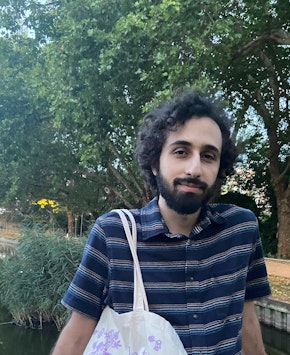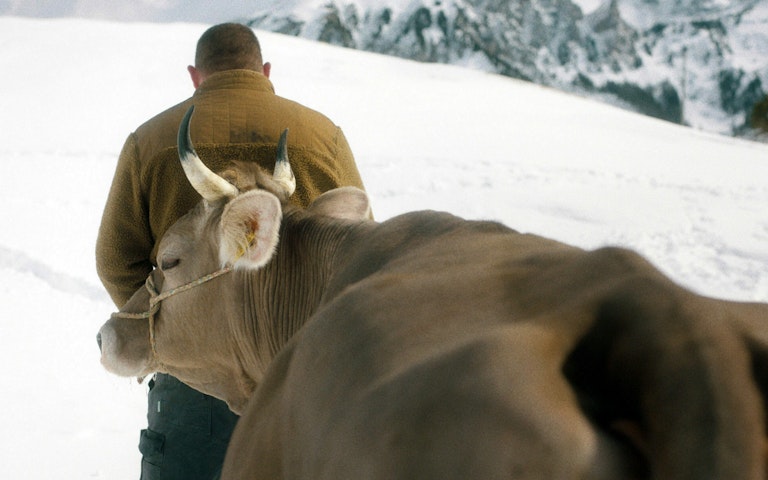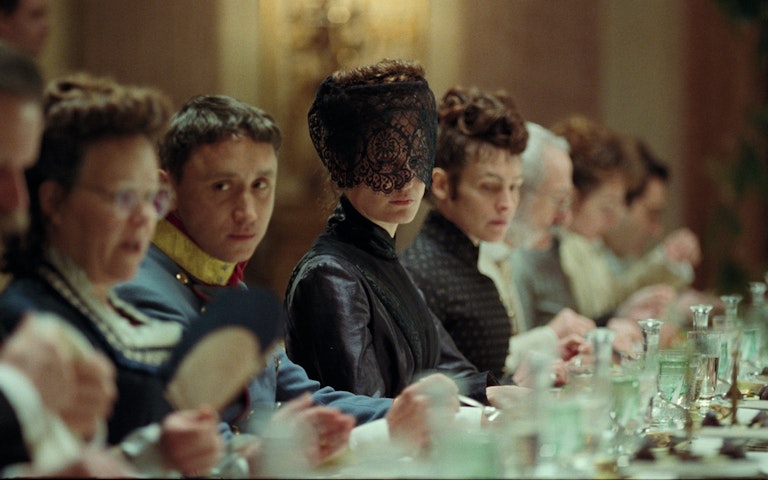Young Critics Review: Trenque Lauquen (Arta Barzanji)

Trenque Lauquen
Two men are searching for clues about a recently disappeared woman named Laura. We later learn they are both in love with her. This could almost pass for a summary of Otto Preminger’s 1944 film noir, Laura, and the similarities don’t end there. If in Laura, Dana Andrews’ detective McPherson develops an obsession with the eponymous character through reading her letters, in Trenque Lauquen, Laura and her friend Chicho become obsessed with a mysterious Italian woman after coming across her erotic correspondence with her lover.
Director Laura Citarella, best known for producing Mariano Llinás’s films, anticipates a question the viewers might be asking themselves when early in the film, Laura’s excited recounting of her discovery of the letters prompts Chicho to ask, “so what’s the mystery?” And indeed, the mystery of the film remains vague until the end, taking the form of an obscure Rivettian conspiracy. The letters put Trenque Lauquen in direct conversation with Rivette’s Out 1 (1971)—Juliet Berto stealing the letters that may belong to the Thirteen—and there are also connections to be made with his Celine and Julie Go Boating (1974)—the letters are discovered in books at a local library; a peculiar lesbian couple living in a big house in the second half.
"Through the extended flashbacks and non-linear structure, the idea of ‘returning’ becomes important (and let us return to Laura for one more time, also a film about returning)."
Like Celine and Julie, Trenque Lauquen is a film about the mechanics of storytelling. Most of the film’s 260-minute runtime (divided in two parts) is spent with characters recalling events and telling each other stories. Through the extended flashbacks and non-linear structure, the idea of ‘returning’ becomes important (and let us return to Laura for one more time, also a film about returning). Locations, characters, narrative details, props, music, etc. gain new meaning with each recuring appearance. Trenque Lauquen itself (a small city in Argentina) becomes increasingly familiar, as we learn about its different locations. A building we see in the first hour of the film, with no special interest for us, takes on added significance when we see it again in the second, third and fourth hours. The length of the film allows for such discoveries to happen naturally, without needing to push them. That’s not to say Trenque Lauquen is a particularly meandering film. For the most part, it’s the opposite. Shots and scenes flow smoothly into one another, thanks to the judicious use of the wonderfully varied music and the combined effect of the sound design, narration, and dissolves.
Dissolve is not a form of transition that we see often these days, belonging more to Laura’s classical Hollywood. But it seems fitting in a film that deals with and moves freely between past and present. Afterall, dissolve is the trace of the future in the face of the past. In the tiresome assortment of pompous festival films with no memory of the past of their own medium, here is an ambitiously modest film that remembers that history well and knows how to return to it. Like its own narrative structure or fondness for dissolves, Trenque Lauquen seamlessly moves between the past and present of cinema and gives us a glimpse of its future.

Arta Barzanji
I’m an Iranian cinephile, writer, filmmaker, and a current MFA candidate in Film and Media Arts at Temple University. My work, encompassing experimental, narrative, and documentary modes, deals directly with the cinema itself, exploring the relationship between the viewer and the screen while engaging with the works of filmmakers as diverse as Stan Brakhage, Orson Welles, Kamran Shirdel, and Malcolm Le Grice. My critical writings and translations have appeared both in Farsi and English in publications like photogénie, Filmkhaneh, and Film Matters, focusing on filmmakers such as Sohrab Shahid Saless and Straub-Huillet among others.




